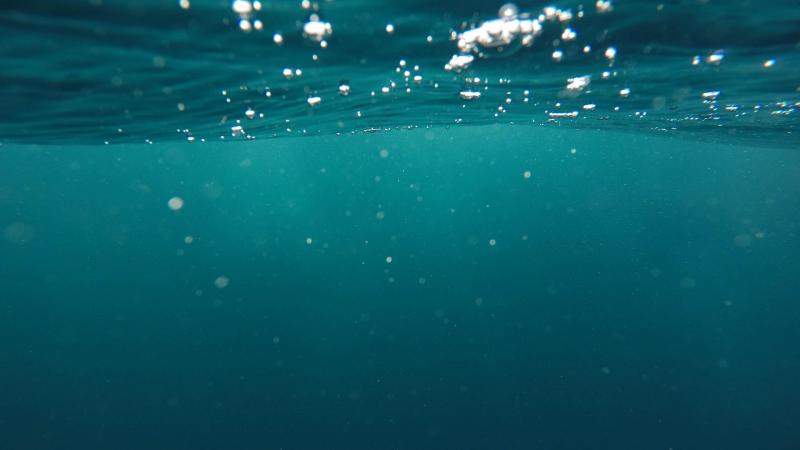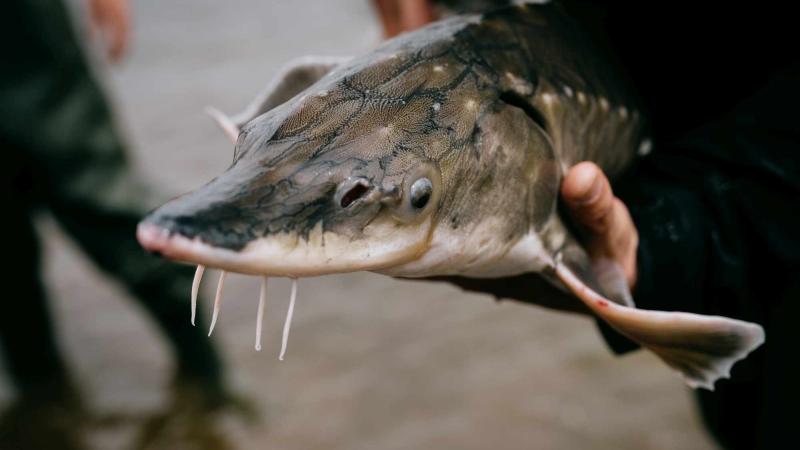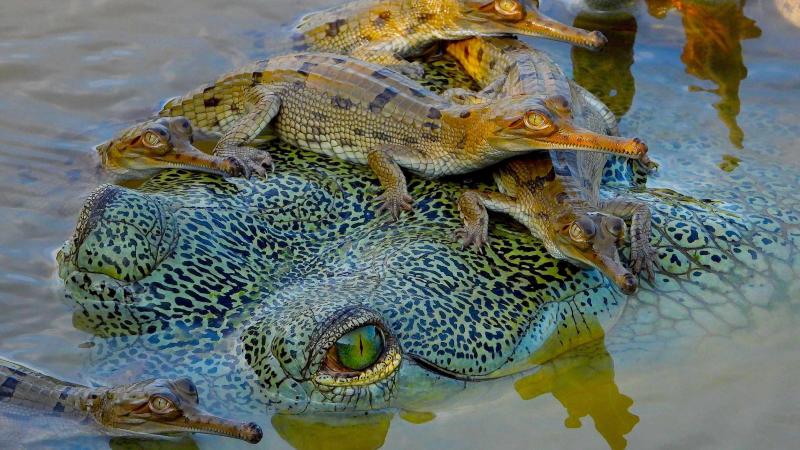Tina Heger took up her honorary professorship at Leuphana University Lüneburg in April 2025. | Photo:
Jennifer Fandrich
Dr Heger, your research covers a wide range of ecological topics. I would say that, broadly speaking, your work focuses on relationships: between invasive and native species, between humans and nature, and between knowledge creators and recipients. You even study the relationship between researchers and their research. Is that about right?
Tina Heger: Yes, this description actually fits quite well. I am interested in ecological connections, particularly at the level of interaction. This is not limited to action and reaction, but encompasses all types of relationship. My work involves describing relationships and developing theoretical methods to make complexity more visible. That may sound abstract. Let me give you an example: When an alien species establishes itself in a new habitat, this naturally impacts the native fauna — and vice versa. Analysing these interactions is classic ecology. However, I am also studying the theoretical framework, for example, how the various theories on invasion biology can be combined to improve our understanding of invasive species — this is the Hierarchy-of-Hypothesis-approach.
What is the purpose of the Hierarchy-of-Hypothesis-approach?
Let me briefly explain its background. In my view, one of the great challenges of science is the ongoing increase of scientific evidence. In theory, this should enable us to describe and explain complex ecological systems in much greater detail than ever before. However, more information does not automatically mean more knowledge and understanding. Publishing results in scientific journals and depositing data in public archives does not guarantee their practical application, reuse or the further development of scientific theory. Together with IGB scientist Jonathan Jeschke, I have developed the 'Hierarchy of Hypothesis' approach. Our aim is to improve the situation by linking evidence and theory. An important step towards the more efficient utilisation of results from case studies is synthesis. There are many methods for statistically combining the results of several studies. These methods enable research results from different studies that address a common question to be synthesised.
Ah, a kind of knowledge incubator. You are also developing new methods to make knowledge more accessible. Could you explain this a little more?
Let's start with the target group: researchers in invasion biology. In the Hi-Knowledge approach, we utilised the mapping principle to compile heterogeneous invasion biology data and information in a web-based application. This makes knowledge easy and quick to find. In invasion biology, it is particularly important to make knowledge available quickly and easily, because the management of invasive species depends on it. Preventive or at least early management is crucial for controlling the spread of species. A second topic is the loss of biodiversity. How can we stop it?
What are, in your opinion, the greatest challenges in reducing biodiversity loss?
The restoration of ecosystems is, of course, an important factor here. I would also like to contribute to this by making the available information more accessible. For example, I could share information on what has and hasn't worked in terms of restoration measures. My future work will therefore focus on how we can translate ecological knowledge into better restoration practices. This can only be achieved through diverse teams of practitioners, researchers, and individuals with local knowledge. We are currently working intensively on corresponding research proposals.
You enjoy working across disciplinary boundaries, for example with philosophers. What makes this exchange so special?
To me, it's an obvious collaboration. Many ecologists have more contact with philosophy than they realise, and their research is often influenced by the philosophy of science. Looking at how current philosophy views science has helped me a lot. In ecology and science in general, Karl Popper's theory is very influential. The idea that real science must be falsifiable is still a paradigm today, and many ecologists pursue this ideal. However, this doesn't always work in ecology. This became apparent again when Jonathan Jeschke and I developed the Hierarchy-of-Hypothesis approach. At a workshop with philosophers, they were surprised that we ecologists adhere so strictly to Popper and are unaware that philosophy offers much more and has already progressed further on some topics. So the philosophers' 'Forget about Popper!' statement was an eye-opener for me, inspiring me to explore other areas of philosophy and the philosophy of science. Consequently, together WE wrote a publication on this topic entitled 'Looking beyond Popper'.
What else have you learnt from philosophy?
Oh, so much! We should critically scrutinise our ingrained patterns of thinking and research approach much more often. Take the topic of causality, for example. As a scientist, I used to have the rigid idea that you can only make statements about cause-effect relationships on the basis of experiments. In philosophy of science, however, the topic of causality is currently being heavily scrutinised. Current philosophical approaches show that there are many forms of cause-effect relationships and that an open, pluralistic approach can be very productive, even in scientific contexts.
You have described how you are investigating some of the major ecological crises of our time. But now I have a very personal question: how optimistic are you about the future?
Although I know how bad the state of ecosystems and biodiversity is, research gives me the belief that the situation can improve. Especially as an ecologist, I think it's important to have a vision of a better world. My goal is a nature-positive future in which we live in harmony with nature. We should therefore move from the Anthropocene to the Symbiocene. In the narrative of the Anthropocene, there is always an undertone that humans dominate nature and that there is a divide between nature and culture. I would like to help break down this narrative.
Do you think the concept of the Anthropocene is outdated?
Unfortunately, the term is not outdated yet. However, it does more harm than good when it comes to improving the strained relationship between humans and the environment. I believe that perspectives change when a positive vision of the future is formulated. In the future, I will therefore address questions such as the following: What kind of nature do we want to live in harmony with? What is our vision for the future of human-nature interactions? How can we take transformative action to achieve this vision? It is also important to question established thought patterns here.
Could you give us an example of a thought pattern that you would like to examine critically?
For example, our view of invasive species and new ecosystems. These are challenging issues for nature conservation and restauration. But what value does this 'new' nature have for us? Could we also benefit from these changes? I will also be addressing these important questions in the Bachelor's programme that I will be contributing to at Leuphana University in the future. I'm looking forward to interacting with the students, who will undoubtedly provide new perspectives on my thinking and research.
Thank you very much for the interview, Dr Heger, and we wish you all the best for your new positions!





